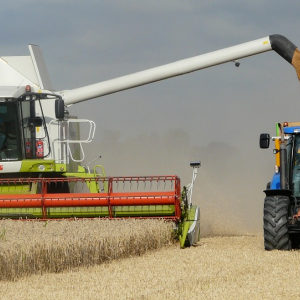
This paper argues that the COVID-19 pandemic requires a policy response that significantly reforms the structure of the food system. It examines how policy responses to past food crises have shaped the present system, how COVID-19 is different to past food crises and which policy responses could build a more resilient future food system.
The paper argues that food policy over the last few decades has focused on increasing efficiency via industrial production methods (i.e. the Green Revolution, consolidation of farms and technologies such as pesticides), the spread of neoliberalism and international food trade, and more recent efforts to boost the production of smallholders so that they can play a greater role in global supply chains. According to the authors, the effect of these changes has been to give more power to large agribusiness firms, entrench a globalised food system and weaken land rights for vulnerable food producers.
This focus on efficiency, it is argued, has left the food system vulnerable to complex food systems crises such as COVID-19, where livelihoods, health of food workers, supply chains and food prices are all disrupted at once. Some countries in the Global South were encouraged to take part in the global hyper-specialised food system on the basis that it would lead to greater efficiency and higher incomes, but now find themselves particularly hard hit by COVID-19.
The authors note that some people feel the food system has performed well in the COVID-19 crisis in that places still have access to at least some food, and that the system should not be judged on a once-in-a-century event. However, a more resilient food system will be needed because more crises are yet to come, including climate change, extreme weather, trade protectionism and conflict.
The paper recommends actively promoting more diverse food systems (e.g. agroecology) alongside robust protection for smallholders, commercial food workers and low-income consumers.
Abstract
Our analysis situates the current COVID-19 induced food crisis within a longer-term historical perspective on policy responses to past food crises. We argue that the legacies left by these past policies created vulnerabilities in the face of the present crisis, which is characterised by three interlocking dynamics: disruptions to global food supply chains, the loss of income and livelihoods due to the global economic recession, and uneven food price trends unleashed by a set of complex factors. We make the case that the COVID-19 pandemic marks an inflection point and demands a different set of policy responses that work toward fundamentally transforming food systems.
Reference
Clapp, J. and Moseley, W. G. (2020). This food crisis is different: COVID-19 and the fragility of the neoliberal food security order. The Journal of Peasant Studies. Published online.
Read the full paper here. See also the Foodsource chapter Impacts of climatic and environmental change on food systems.












Post a new comment »